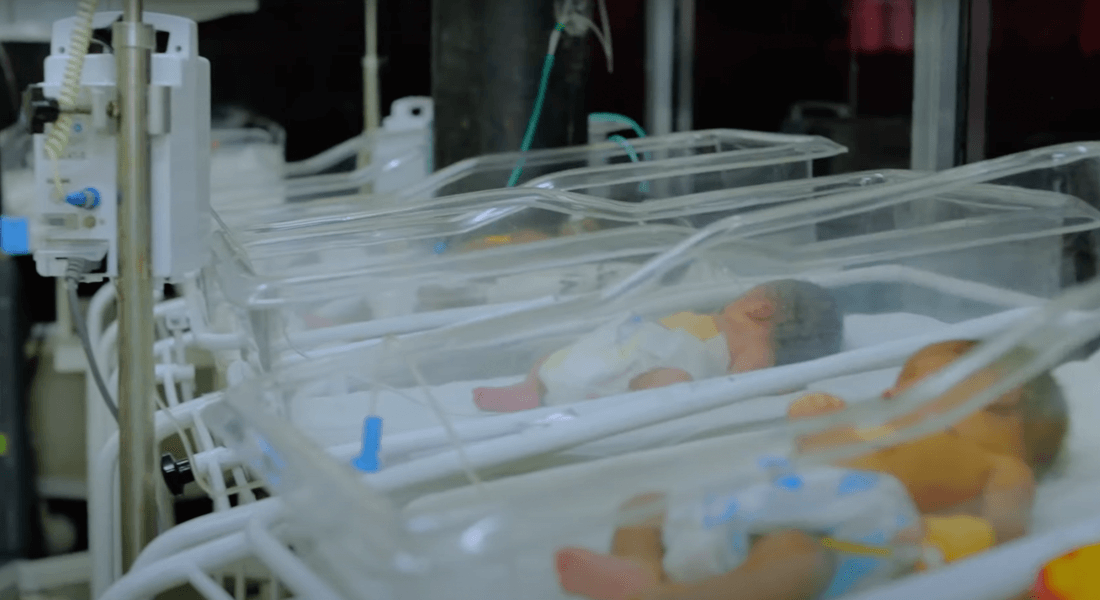Urgent action needed to reduce stillborn and newborn deaths in Tanzania
A new publication involving researchers from Tanzania, the Netherlands, and Denmark has revealed that nearly four out of every 100 births in Tanzanian urban hospitals result in tragic deaths. Many women arrive with babies already deceased before birth. The study was published in BMC Pregnancy and Childbirth.

Photo courtesy of NEST 360 program, Tanzania
In 2015, worldwide, about two million babies were stillborn (born without any signs of life) and 2.5 million newborns died shortly after birth. In poorer countries in sub-Saharan Africa, where a majority of the deaths occur, the rate of stillbirths and deaths of newborns is over eight times higher than in wealthier countries.
In Tanzania, about 40 out of every 1,000 babies die around the time they are born. Over the past decades, there has been a growing proportion of women in Tanzania choosing to give birth in hospitals. Even though more than 95% of moms in Tanzanian cities give birth in hospitals, the number of babies dying in hospitals has not reduced.
“We were surprised that 88% of the pregnant women with stillbirths arrived at the study health facilities without a fetal heart tone, meaning the baby had already died in the pregnant woman’s womb. We expected it to be around 50%. We are unsure whether the babies died while the woman was at home, or in another referring health facility, in transit or while waiting for care’’, explains Brenda Sequeira Dmello, first author of the publication in BMC Pregnancy and Childbirth.
“It's clear that there is a need to better understand the reasons behind these issues and find ways to improve the health of mothers and newborns in urban areas,” adds Dmello.
Strains in urban health systems
The study represents a collaborative initiative involving five maternity hospitals in Dar es Salaam, CCBRT Hospital, Aga Khan Medical College, and researchers from Vrije Universiteit Amsterdam in the Netherlands, as well as the University of Copenhagen in Denmark. It is an integral part of the larger PartoMa Project, which receives funding from the Ministry of Health in Denmark through the Danida Fellowship Centre.
The research findings highlight major challenges within the city's healthcare systems, including excessive workloads, where a single maternal health provider is tasked with caring for more than 4-6 women simultaneously. The study reveals the presence of highly complex cases, inadequate space, and shortages of essential supplies and staff. In addition, the research exposes skills gaps, particularly during the crucial time of childbirth. The strain on the health system became even more pronounced during the COVID-19 pandemic.
“Our audit of over 2000 cases showed elevated risks for pregnancy loss among women with existing risk factors, those with low-birth-weight babies, and hypertension,” says Dmello.
Only 5% of the women in the study underwent an ultrasound scan during the early phase in their pregnancy. This limited number of scans makes it challenging to accurately determine the gestational age of pregnancies, a crucial factor in planning care for pregnancies with higher risks.
The researchers stress the importance of providing immediate and reliable high-quality medical care throughout pregnancy and childbirth. They highlight the need for specific strategies to improve healthcare in fast-growing cities like Dar es Salaam.
“It's essential to focus on this issue at global, national, regional, and city levels to prevent avoidable deaths. Doing so not only helps families who have suffered losses but also has significant economic benefits due to the lives saved,” recommends Dmello.
For more information, visit the PartoMa website.
